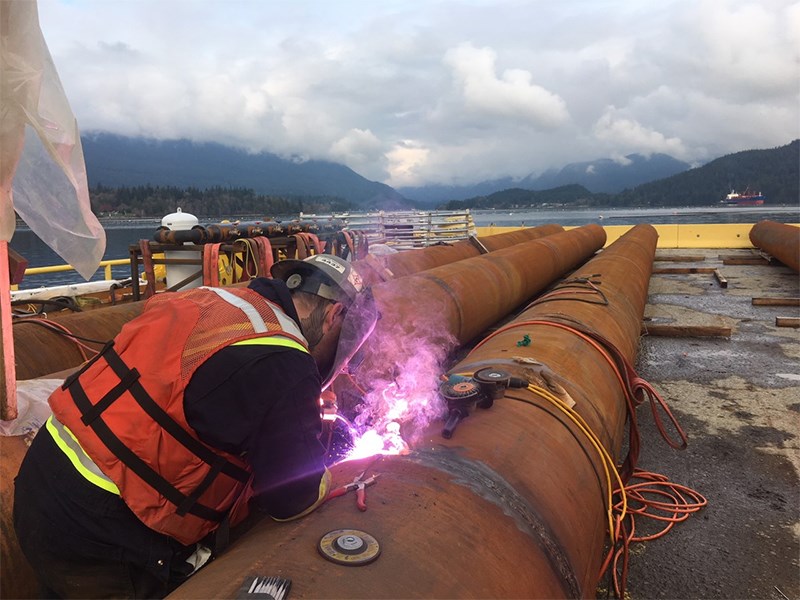Coquitlam will be pushing hard to make sure it’s compensated for costs associated with construction of the now approved Trans Mountain Pipeline through the city’s industrial corridor, says Mayor Richard Stewart.
Stewart’s concern is that the city may have to shell out $59 million over 50 years — an average of almost $1.2 million a year — to deal with issues related to the fact that the pipeline will be under city streets.
"My job is to make certain the impact of such decisions — whether its natural gas or bitumen or whatever — are managed on behalf of the taxpayers of Coquitlam. Right now, we're pushing harder than any other municipality related to costs associated with hosting a pipeline," Stewart said.
While it’s not known when construction would begin on the Coquitlam segment of the pipeline, early approvals had the route travelling in the city from east of the Port Mann Bridge, where it comes in under the Fraser River, and traveling along Rogers and Hartley avenues up to and along United Boulevard before connecting with the existing pipeline corridor to Burnaby.
In 2018, Coquitlam opposed the route under city streets, preferring the pipeline to run under parking lots to avoid extra maintenance costs but was turned down by the National Energy Board. Subsequently, the city demanded $151,000 in payment because of maintenance issues from delayed roadwork along the pipeline route, but has yet be compensated.
Stewart is hoping the city’s concerns will be dealt with now that the pipeline to carry bitumen from Edmonton to Burnaby is going ahead with federal government approval.
But he’s not hopeful, given the challenges the city has faced with delays and costs due to the Fortis gas pipeline replacement on Como Lake Avenue.
“Our challenge on United Boulevard [is] if you thought the conditions are challenging on Como Lake, United Boulevard has the worst soil conditions in the entire community. It’s built on landfill and debris from nearly a century of industrial activity.”
And while project proponents, originally Kinder Morgan, promised $300,000 in scholarships for students and $1 million for Mackin Park improvements as community benefits, Stewart doesn’t think the money is enough to compensate taxpayers for the costs and the disruption.
The pipeline will triple the capacity of the pipeline system from 300,000 to 890,000 barrels a day and over the years has generated significant concern from various groups in the Tri-Cities, including the city of Port Moody, which opposed the project because of concerns about spills, and local environmentalists worried about a proposal to stage construction materials on Colony Farm Regional Park, a proposal that was later dropped.
Approval of the project is dependent on the fulfilment of 157 conditions, but continues to be opposed by the provincial government, environmental groups and several Indigenous organizations.
However, the proponent believes the project will meet the demands of taxpayers, the oil industry and environmental groups across the nation.
In a press release Tuesday, the Trans Mountain Expansion Project provided the following statement: “Our project will be the best built, safest, and most technically advanced pipeline possible. The extensive Crown-led Indigenous consultations and marine environment review recommendations have made TMEP an even stronger, and more responsive project.”
Stewart, meanwhile, would not comment on the federal government’s decision to build the pipeline.
“That is federal not city jurisdiction,” he said.



